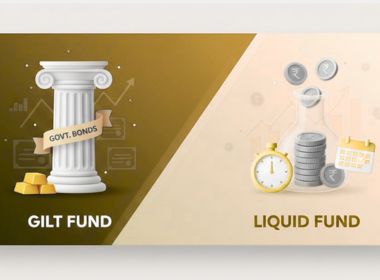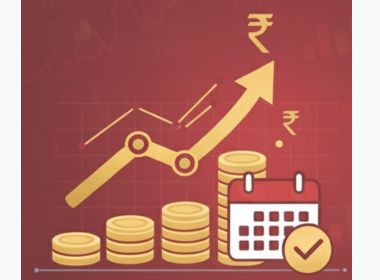Search Suggestions
- Gold Loan
- Money Transfer
- Mutual Funds

How is Loan to Value beneficial for you?
Possessing any asset, be it a house or a car; gives a great sense of joy and accomplishment. When used smartly and responsibly, a loan is a great route to purchase an asset of your choice. Rather than paying a lump sum and locking your finances, repaying a loan via EMIs can help you utilize your money elsewhere. However, before applying for a loan, it is advisable to understand the working and calculation of the loan. One such important aspect is the LTV Ratio. Put simply, it is a ratio of the loan amount to the value of the asset. LTV ratio ensures that the lender doesn’t finance more than the asset value. A low LTV is considered good for both the lender and the borrower.
Table of Content
- What is a Loan to Value Ratio?
- How is LTV Ratio Calculated?
- What does a Loan to Value Ratio Mean to Borrowers?
- Low LTV Loan
- How Can You Lower Your LTV?
What is a Loan to Value Ratio?
The loan-to-value (LTV) ratio is an assessment of lending risk that financial institutions and other lenders examine before approving a mortgage. A high LTV for lenders means that they are lending a bigger loan amount proportionate to the value of the asset. For borrowers, a high LTV could mean that they have made a lower down payment. Thus, the associated risk increases for the lender, and such high LTV ratio loans come with a higher interest rate. A low LTV means that the borrower has made a large down payment and hence he/she is borrowing less from the lender. In such cases, the associated risk decreases for the lender and he/she can get better terms, including interest rates, on the mortgage.
To sum up, a high LTV is not considered good and vice versa.
How is LTV Ratio Calculated?
The LTV ratio is calculated by lenders using the below-given formula:
LTV Ratio (%) = Amount Borrowed/Property Value X 100
For example, if you wish to buy a house worth Rs.10 lacs and the LTV ratio of your bank is 70%, then the maximum amount of loan that you can avail of is Rs.7 lacs.
What does a Loan to Value Ratio Mean to Borrowers?
High LTV Loan
As mentioned earlier, a high LTV ratio means higher risk for the lender and increased cost for the borrower. A high LTV loan could mean some or all of the following:
- You have paid a low down payment.
- Your monthly loan repayment is higher.
- Your income proofs are not proportionate to the loan amount you are applying for.
- You have to pay higher mortgage insurance premiums if any.
Low LTV Loan
A low LTV loan means that you are more invested in your asset. A low LTV loan could mean some or all of the following:
- You have paid a higher amount as a down payment.
- Your monthly loan repayment is lower.
- Your income proofs are sufficient for the loan amount you are applying for.
- You can enjoy discounts on your mortgage insurance premiums if any.
How Can You Lower Your LTV?
A low LTV ratio means better benefits. Here are some of the ways you can lower your LTV and enjoy better terms and benefits:
- Make a bigger down payment: If you have surplus cash, you could make a large down payment.
- Make Extra Loan Repayments: If you are servicing 12 EMIs, you could consider making a couple of extra EMI payments. Your LTV ratio drops with every mortgage payment.
- Select a Short Tenure Loan: If you are comfortable with a higher monthly EMI, a short-term loan will lower your LTV faster than a longer-duration loan.
- Buy a less Expensive Asset: If possible, consider buying a less expensive house or vehicle as this can help you avoid a high-LTV ratio loan.
Suggested Read: WHAT IS HOME LOAN LTV?
CATEGORIES
OUR SERVICES
-

Credit Score
-

Gold Loan
-

Personal Loan
-

Cibil Score
-

Vehicle Loan
-

Small Business Loan
-

Money Transfer
-

Insurance
-

Mutual Funds
-

SME Loan
-

Corporate Loan
-

NCD
-

PAN Card
-

NPS
-

Custom Offers
-

Digital & Cashless
-

Milligram Rewards
-

Bank Mapping
-

Housing Finance
-

#Big Business Loan
-

#Gold Loan Mela
-

#Kholiye Khushiyon Ki Tijori
-

#Gold Loan At Home
-

#Sunherisoch
RECENT POSTS

Understanding KDM Gold and Why it’s Banned
Know More
How BNPL Affects Your Credit Score
Know More
What is a Cheque and its Different Types in India?
Know More
Benefits of Paying Your EMIs on Time: Why Timely Payments Matter
Know More
A Complete Guide to Report Online Fraud
Know More
How does a Personal Loan Affect your Credit Score?
Know More
Gilt Fund vs Liquid Fund: Full Form, Meaning & SIP Guide
Know More
XIRR in Mutual Funds & SIP: Full Form, Meaning, Formula and How to Calculate
Know More
7 Key Factors to Consider Before Taking an SME Loan
Know More
Difference Between Black Gold and Gold: Everything You Need to Know
Know MoreFIN SHORTS

What Are Co-Pay and Deductibles in Insurance Policies?
Know More
Should You Take a Loan Against Your Mutual Fund or SIP?
Know More
Top 5 Best Mid-Cap Mutual Funds to Watch in 2026
Know More
Are Personal Loans Right for Retirees? Key Points to Consider
Know More
What Happens to a Personal Loan After the Borrower Dies?
Know More
Best Loan Choices for Credit Scores of 580 and Below
Know More
7 Reasons Why a Gold Loan Is the Best Option for Small Businesses
Know More
10 Reasons Why People in India Prefer Physical Gold
Know More
Real Estate vs Gold: Which Is a Better Investment in India?
Know More
10 Common Mistakes That Make Investors Lose Money in Mutual Funds
Know More
10 Reasons Why Gold Has So Much Appeal in Uncertain Times
Know More
7 Ways Settling Debt Can Impact Your CIBIL Score
Know More- South +91 99469 01212
- North 1800 313 1212





